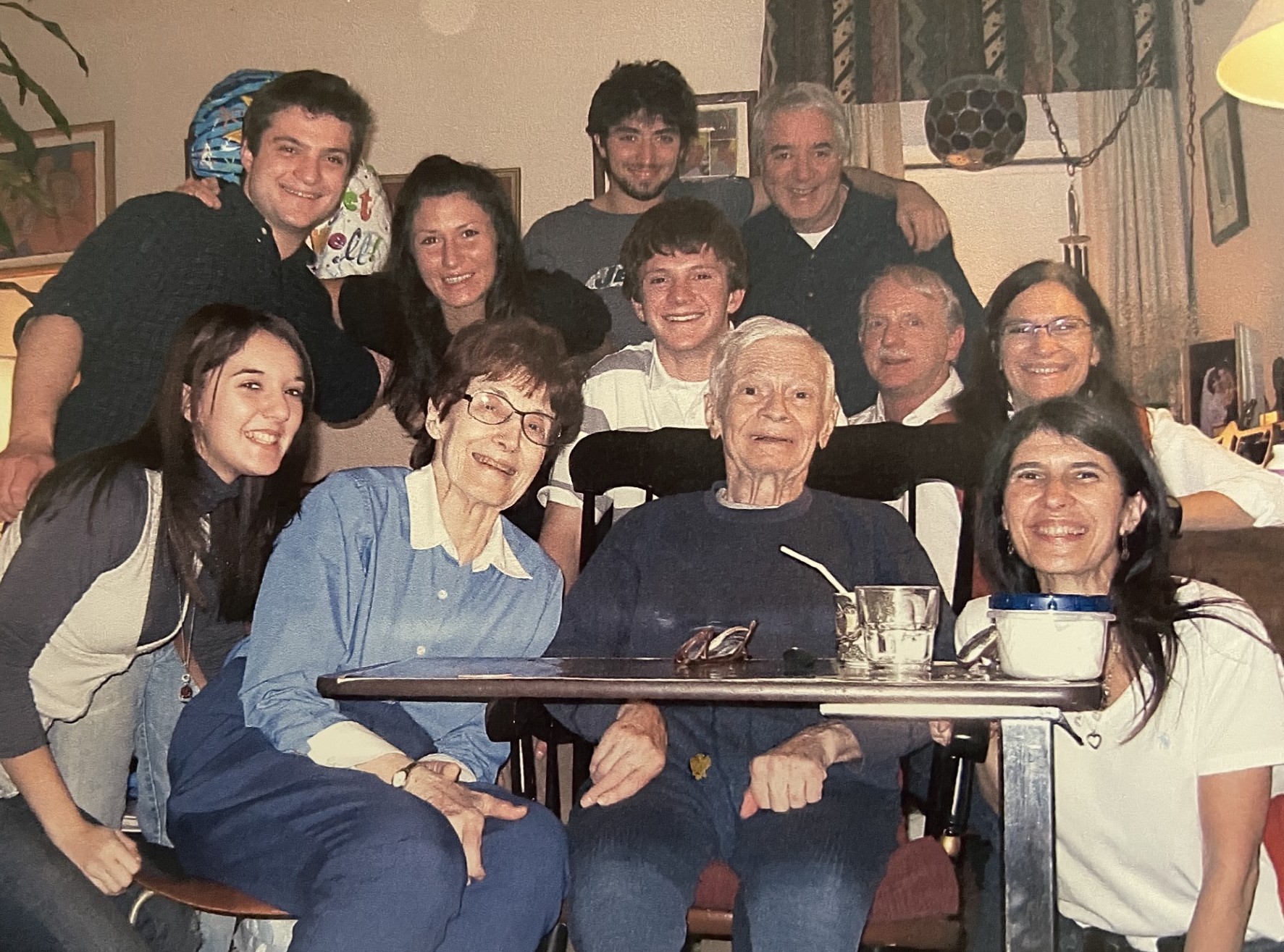
|
In Our Words:
José's Health and Final Years
José was relatively healthy throughout most of his life. Although he had been a very heavy smoker while in the army and for many years after, in the early 1950’s a colleague at the VA Hospital, concerned about José’s smoking, showed him an autopsy photo of a heavy smoker’s lungs. José stopped smoking immediately and never smoked again.
José adhered to a daily workout regimen that he derived from a booklet he called “The Canadian Army Exercises.” Each morning he started his day with jumping jacks, sit-ups, and push-ups, usually completed while he was still wearing pajamas. When his grandchildren visited, he encouraged them to participate with him and to pull his legs as part of his stretching exercises.
During the war José had suffered a mouth injury that included the loss of a tooth. Being in a war zone, the damage was not addressed at the time. The consequences of this necessitated extensive dental rebuilding throughout his life. He received cutting-edge dentistry performed by the top specialists at the University of Pennsylvania. He was fastidious about his dental hygiene, announcing the end of his food intake each evening before he embarked on a set of procedures to maintain his dental health. The extensive amount of time he spent with these dentists and the relationships he developed with them may have contributed to his decision to transfer his teaching from the University of Pennsylvania Medical School to the University of Pennsylvania Dental School.
In his early 80’s José was diagnosed with diabetes, necessitating blood testing, injections, and changes to his diet. He maintained his active life while monitoring his sugar intake. He added walnuts to his Honey-Nut Cheerios to get more protein, and fed his sweet tooth with sugar-free chocolate. He had always kept a stash of sweets in a location identified as his ‘secret drawer’ in the kitchen. The family all knew about this ‘secret drawer’, and that it was not the exclusive location of his sweet treats; his briefcase, coat pockets, and desk drawers also contained hidden treasures.
Shortly before his 85th birthday he was diagnosed with pancreatic cancer. He underwent a modified Whipple surgery (which replaced his bile duct and removed the head of his pancreas) and a brief course of chemotherapy. He lived virtually pain free until he passed in May 2009.
Josy and the family created the Dr. Joseph L. Rabinowitz Fund for Pancreatic Cancer Research. Along with generous friends, they raised over $25,000, which was donated to Dr. Bert Vogelstein for research on early identification of pancreatic cancer. Dr.Vogelstein’s groundbreaking research recognized these contributions.
José’s colleagues at the University of Pennsylvania School of Dental Medicine established the Rabinowitz Memorial Lecture, a scientific lecture to honor José’s passion for research; the lecture is presented during their annual Research Day. The Joseph and Josephine Rabinowitz Award for Excellence in Research is also awarded on that day.
|
|

